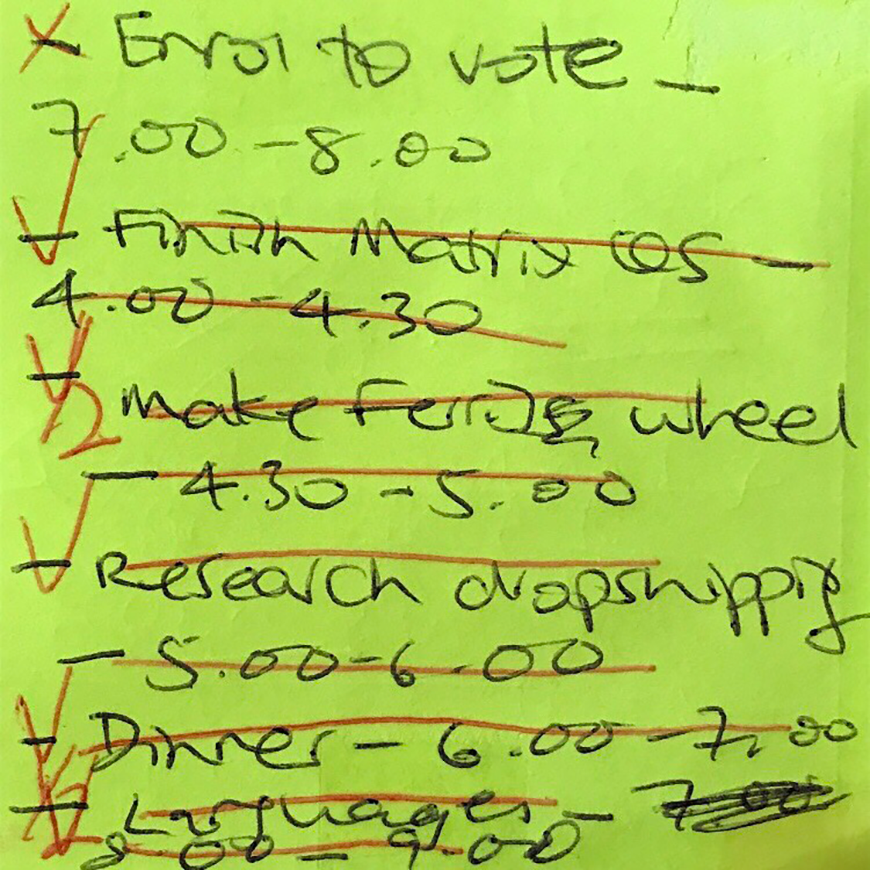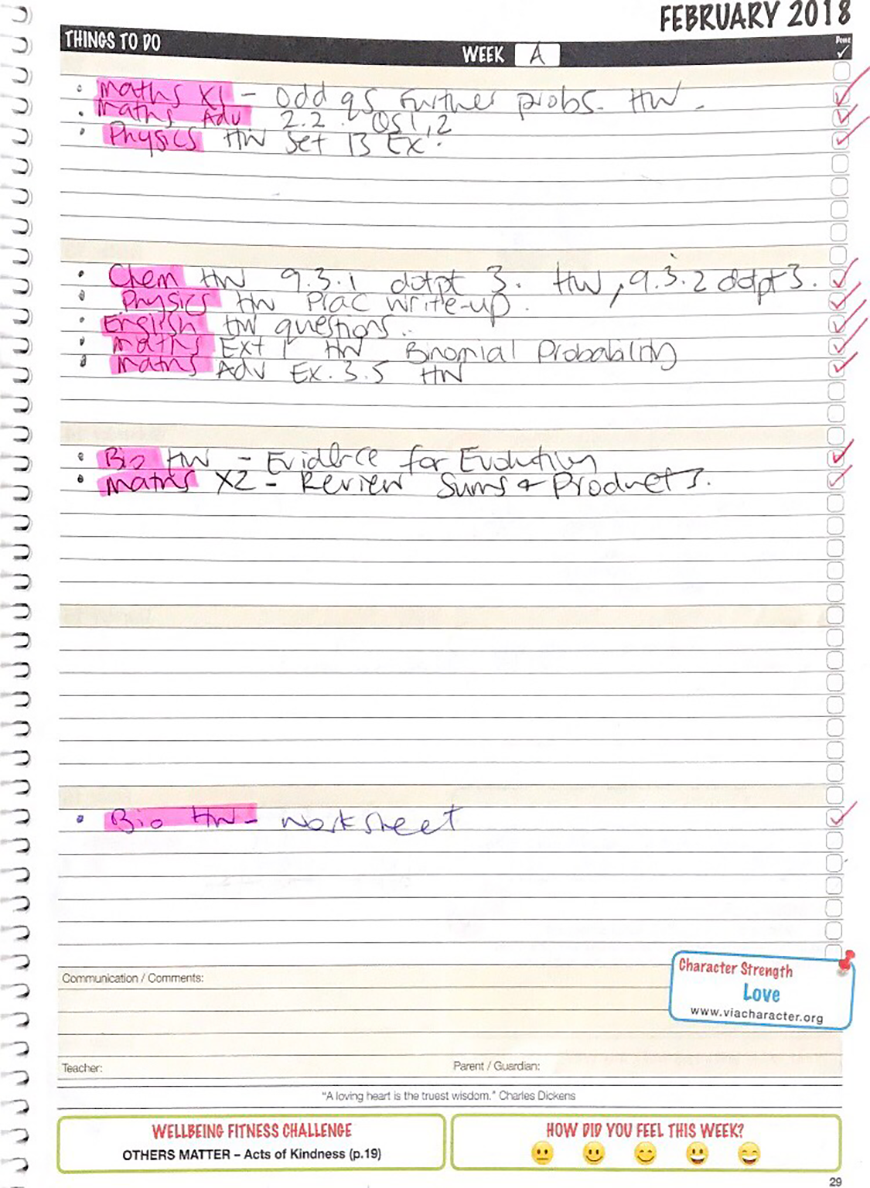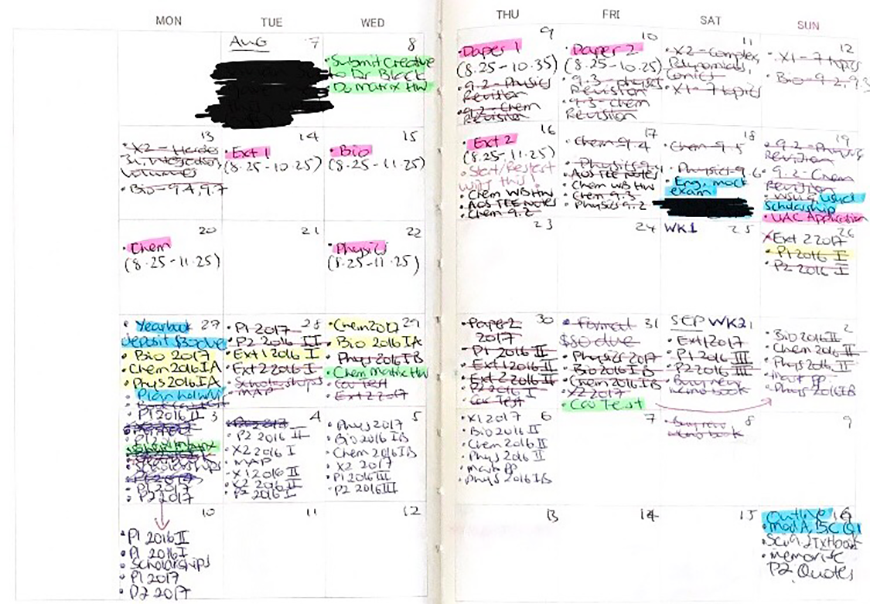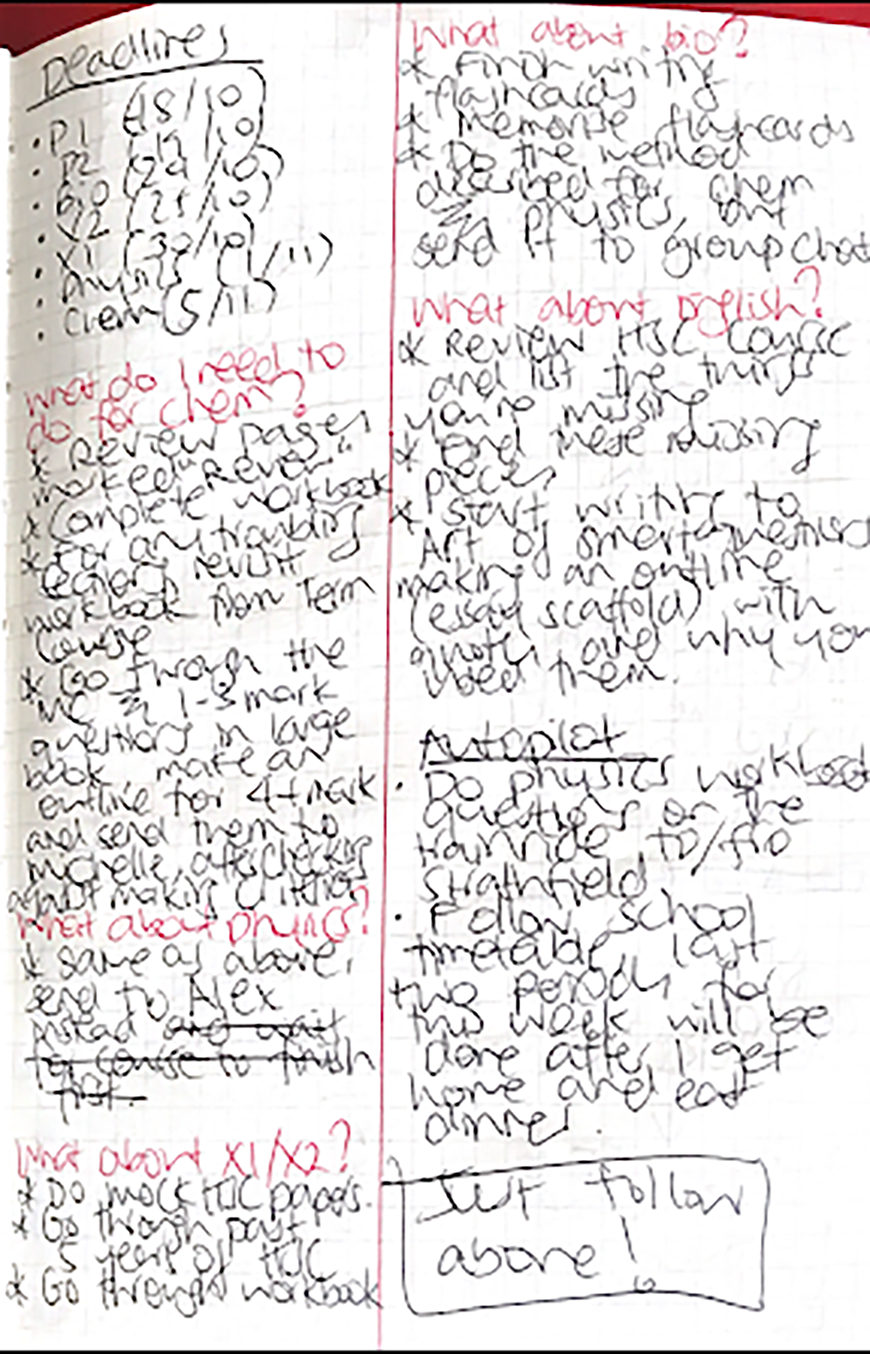Welcome to Matrix Education
To ensure we are showing you the most relevant content, please select your location below.
Select a year to see courses
Learn online or on-campus during the term or school holidays
Learn online or on-campus during the term or school holidays
Learn online or on-campus during the term or school holidays
Learn online or on-campus during the term or school holidays
Learn online or on-campus during the term or school holidays
Learn online or on-campus during the term or school holidays
Learn online or on-campus during the term or school holidays
Get HSC Trial exam ready in just a week
Get HSC exam ready in just a week
Select a year to see available courses
Science guides to help you get ahead
Science guides to help you get ahead
Do you have trouble knuckling down and getting it done? In this article, Isaiah Balot shares his secrets for getting focused so you can hit your ATAR goals?

Join 75,893 students who already have a head start.
"*" indicates required fields

Join 8000+ students each term who already have a head start on their school academic journey.
In this article, Hurlstone Agricultural High School Student Isaiah Balot shares his secrets for learning how to focus so he could ace Year 12.
I’m not going to be the perfect student that you’d probably be expecting. In fact, it was only after the HSC when I started to manage my time properly – one of the most crucial study basics – and stick to it. Despite all of this, managing my time is still the most important thing I do each day, and I hope you can get into this habit quickly so that I can teach you how to “stick to it”, rather than cram.
Managing my time involves two things:
Let’s talk about planning my day.
Here’s how I would start my days:
I wake up in the morning, grab a sticky note and jot down my to-do list for that day.
Here’s the trick, I add time-frames to these, and the work I assign myself are highly specific tasks that don’t have me questioning myself and the work that I should be doing (it leads to procrastination). The key here isn’t to just jot down tasks, but also to assign time frames that allow me to be honest with myself on how much I can do during that day and how long I can actually handle that task.

The piece of paper stays in my pocket throughout the day so I can continually refer back to it and ensure that I’m doing what I planned to do. This limits any opportunity for procrastination!
5 minutes is all I need to plan my day.
During the HSC, you’ll have deadlines, obligations and tasks that you need to manage, and they ultimately should go into a master list! I use a calendar, some use a planner. Here’s how I do this.
I carry a planner with me during the day. Throughout the day, I make a list of new items to remember such as a homework due on Friday or an assignment due in the next two weeks.

Each morning before I make my plan for the day, I transfer these new items into my calendar and then I’m ready to plan the tasks I should be doing under today’s date.

If I don’t have enough time to complete a certain task, I move it over to a new date. This is how I know what tasks I should be doing.
After periods of neglecting this method (don’t get upset when you do because you will), I sit down and jot down every single deadline and simply start again.

When studying for exams, you can’t avoid the need to capture and internalise the information.
So, write your notes to enable this!
Capturing- Make your notes in your own words and ensure that they are structured accessibly.
Internalise – Quiz yourself.
When you write you notes ensure the structure is good for self-quizzing, such as in a Q&A format because that ultimately helps you quickly review the material.
You want to avoid sitting down and trying to understand the material for the first time, especially weeks after the material is taught. Do it as you get it!
Revision is revision, not relearning the material again.
This is the only study time you should be doing, anything else is preparation or procrastination.
Get ahead with Matrix+ Online
Expert teachers, detailed feedback and one-to-one help. Learn at your own pace, wherever you are.
My #1 problems in Year 11/12
Even during my HSC, I was still cramming!
If I hadn’t moved on from the practice of rote review, then I wouldn’t have performed at all. And, If you’re deploying the time management tactics I’ve described above, then you won’t need to cram.
The next important study problem you need to fight is procrastination.
Does this sound familiar?
You’ve planned your day, but you can’t follow through. You put things off. Why does this happen so easily?
Because you don’t have enough at stake!
If you want to stick to something, you need stakes. The best stake for me was my ego!
So, recording my performance was an important boost-or-blow for my ego. This kept me motivated.
But there’s more to this than just putting your ego at stake. These types of performance indicators let you highlight your strengths and weaknesses and show you where you can focus next time.
Ultimately, if you don’t drive yourself, you can’t fight procrastination.
In addition, make sure you have the energy to do the work, or you won’t do it. If you don’t have the energy, perhaps your brain is telling you that:
If this is the case, then plan accordingly:
You need to understand that you will need a lot of discipline to form a habit, but once that habit is formed, you’ll instinctively stick to the habit.
Active recall is the only studying you need to do.
If you can say the ideas in your own words without looking at any notes, you’re done studying that thing and can move onto the next thing.
For English, adding an hour a week e.g. on a Sunday to spend some time thinking deeply about the topics discussed in class will yield you more complex ideas – I did this with a friend during our breaks and sometimes after school.
For Maths, if you can explain each step of the solution, move on. Don’t memorise equations, just practise deriving them and using them a lot.
For Science, use a flashcard for memorisation with a question on the front e.g. “What does the xylem carry?”, answer on the back e.g. “Water up the roots.”, and use the “Waterfall Method” described by Allen Cheng, or read “Moonwalking with Einstein” by Joshua Foer and use mnemonics.
If it’s an idea, capture it in your words and try to recall it without any notes; try to find big ideas even in courses that require a lot of memorisation, even if it doesn’t feel like there is a big idea, as this can help with quick recall.
As early as possible. Squeeze as much as you can in the morning and afternoons and leave nights alone for relaxation (or parties).
In isolated locations to increase your focus, thus effectively decreasing the amount of time you need to study. There’s no required amount of time you need to be studying! You might as well study in as little time as possible, and this requires intense focus.
Take a break every hour. Don’t work past dinner, your head will be too busy thinking about regulating your insulin and digesting the food – this is why you study as early as possible and squeeze as much as you can in the morning and afternoons.
I didn’t rely on past papers to learn the content. Instead, I used past papers to get into test-taking habits.
It’s best if we learn from resources that have all of the information as we can prepare for any question, unlike past papers that provide questions already asked and that are never going to be asked again.
If you’re a student with limited, or without any, past papers, the best practice that you can do is creating your own questions! When you do past papers, you have the luxury of marking the answers for feedback. Otherwise, the best feedback comes from your teachers and yourself.
You should also try and get questions from a peer or a teacher and try to answer them in as much detail as you can while under a time limit. This is essential as it will mimic exam conditions. You’ll want this training to fall back on, come exam time. This is essential as it will mimic exam conditions. You’ll want this training to fall back on, come exam time.
Feedback won’t just act as a good way to track your performance, but also to show you what you can’t do yet.
If you’ve heard of deliberate practice, this is where you can apply it. Deliberate practice is where you apply a purposeful and systemic approach to repetitive learning.
Make sure you follow these rules:
If I could start the year again, I’d track every single thing!
Don’t give yourself the headache of searching through hundreds of papers.
I threw everything away – literally with handouts and exams I got in school, I placed them into one huge pile, a behemoth, of indistinct papers; metaphorically with my life, I just stopped having one and I became one of those students who stayed up late at night to study, huddled with my laptop with tabs open on YouTube and someone else’s study notes and kept myself busy switching between watching “How to study videos” and reading the notes. This didn’t work.
Instead, set yourself a simple system to track everything: a sheet of paper to tick off whether or not you’ve achieved an activity for habit creation, for example, or simply using folders and labelling them to store handouts, exams or even papers for your license.
Here’s a simple rule to remember: Use it or lose it. If that sounds too Lamarckian, here’s the academic adaptation:
As soon as you get a piece of paper, you either put it in a folder, or in the trash.
It’s easy to track your grades with an Excel spreadsheet or a piece of paper (although an Ivy League graduate once wrote to focus on getting the best marks possible, instead of worrying about GPA – which is relatable in terms of school marks).
I recommend that you focus on your rank and keep an eye on your peers who have similar ranks. because moderation ironically makes you the average of your peers (whoever gets your school rank for their HSC rank will yield you their marks, which gets averaged to your school marks).
Not only is tracking useful for staying organised, but it also ensures you complete those plans you’ve made before – it’ll help you “stick to it”.
Every night, in a journal I write down the things I wanted to do, whether or not I did them, and if I didn’t, I’d write down a reason why. More often than not, it’s a silly reason of either being too bored or having a bad plan. The solution I found was to make my plans highly-specific tot he task I had to do.
“Procrastination and perfectionism [are a] deadly combo,” says my friend, Vivian. She experienced the frustration of doing contextual research at the expense of writing essays. She told me that:
I thought I didn’t have enough information. I didn’t take the RISK of writing at all! Such a MASSIVE regret!!!
“Being busy is a form of laziness – lazy thinking and indiscriminate action.” – Tim Ferriss
I liked the idea of being busy because that was what was expected of me. It was the social norm of every single student to do more because it was impressive. But that didn’t mean I was doing good work. I wasn’t being focused. So, in other words, I was being lazy and quickly burnt myself out doing that. It didn’t get easier until I stopped doing that.
Commit to an extracurricular activity at least once a week, and be part of something bigger than yourself. Not only do you contribute to others, but you get to develop other skills that you wouldn’t have outside the classroom.
There are two main benefits: staying mentally and physically fit.
It’s widely written in the medical literature that being physically healthy improves mentality (forget the growth mindset, just keep your body happy and healthy and your brain will follow).
1. Look at the big ideas. Especially in topics of politics, that’s not just Politics 101… it’s the transition of politics from Shakespeare’s time to World War II, and now. I enjoyed talking to my friend and collaborating with her during my breaks and after school. It allows both of us to form our own opinions, and expand each other’s perspective on certain issues that are covered in the text, and we definitely care about.
2. Read the contexts of the texts. The ideas are heavily drawn from these contexts, and also represent these contexts to some extent, regardless of how much the composers physically changes the setting.
3. Make an observation. Create an argument. Find evidence. This is your essay outline.
When you think about it, it’s exactly the same thing that we do in science: Make an observation. Create a hypothesis. Find evidence.
In fact, this is how education was designed back in Ancient Greece: pose a question, find evidence and make a conclusion.
You can stretch this concept into your note-taking format of question, evidence and conclusion.
I’ll explain what I mean:
Observation: In Nineteen Eighty-Four, time striking thirteen is bad luck according to common folklore, and this extends the already-known time-frame of a 24-hour clock.
Evidence: Winston waking up at a certain time for a televised exercise where he is observed definitely confirms the control of time. In addition, Big Brother symbolises the two moustached totalitarian figures in World War II – Stalin and Hitler. Furthermore, the party stratification and control of wealth make it plausible that Big Brother is a symbol representing the wealthy and powerful in both capitalism and oligarchy as well as totalitarian dictators.
Conclusion: Orwell is depicting a futuristic dystopian world where a form of government controls the time of people, perhaps referring to the devastating effects of capitalism and oligarchy present during World War II.
1. Drop English Advanced! If they tell you’re not good enough, it’s an opportunity to gain some new skills.
2. Say English is a waste of time. It’s not. Everything is crafted purposefully and this is fairly complex to understand for people who aren’t purpose-driven.
3. Focus solely on English. You will definitely improve quickly in creating responses, but your performance will deteriorate in other subjects. I moved up 50 ranks for my trial because I only studied for English, but this came at the cost of dropping my rank in other subjects. Start early, schedule well, and spread out the subjects you study. Just as you want to live a balanced life in general, so do you want to study in a balanced manner.
1. Ask questions. If you have no clue with what’s happening, ask questions! Give yourself 48-hours to remove that question mark. If you leave it any longer than 48-hours, don’t expect to do well.
2. Work ahead. Always go ahead of the class. If you’re only just trying to figure out the material being taught in class, you’re already behind and everyone else is ahead practising some questions.
3. Cut the work down. Only focus on topics you can’t do instinctively. If you’re keen, do past papers to diagnose your weaknesses. Then keep doing past papers until you don’t have to think about it anymore.
1. Give up. The moment someone else is telling you the answer, you’re no longer learning – you’re just listening. Learning is active. Listening is passive. If you can summarise what they say, and do it on your own, then you’ve learnt it. Now do a similar question on your own.
2. Waste time on a question. The moment you pause and start writing slowly, or stopped writing at all, move on. Go for points, not answers. Come back to them later.
3. Ask general questions.
Don’t ask – “How do I do this?”.
Rather, ask highly-specific questions – “So, I’ve substituted this, but I can’t get the desired tangent. How do I fix this?”
1. Make practicals fun. Until you hurt yourself. Have fun. Just stay cautious.
2. Set questions. Make a summary of questions to ask yourself after completing a topic. Just a page full of questions that cover every single big idea. Make an answer sheet ready to check. If you can answer the question without checking the answer sheet, you’re done studying.
3. Find a connection. Relate the topics to something that matters to you. The ideas they teach here are easily applicable to your life.
1. Stress. Science was the stress-relief subjects for me. If you don’t like science, don’t do it.
2. Get sidetracked. Ask too many questions irrelevant or outside the scope of the course, especially during class-time. It’s fun but annoying, and we just want to be dazzled with facts that constitute what we’re being tested on before we move onto ideas everyone else won’t be paying attention to later.
3. Rely on the teacher to spoon-feed you.
Don’t wait to be inspired – go out and inspire yourself!
Unless you can go to Matrix (and get Michelle for Chemistry!), you must do your own exploration. Start reading the history of the scientists, make your own analogies for some concepts or attend university lectures (ask those irrelevant and beyond-the-scope questions there). Whatever piques your interest in science, do it.
I’m going to leave you with a quote that I wrote down on my sticky note, and stuck to my calendar:
“You are going to end up better off, more fulfilled as a human, more happy, more satisfied, more successful, if you focus deeply on things that really matter in your life, and are just comfortable missing out on the other noise that surrounds it. That is the formula for thriving.” – Cal Newport
Written by Guest Author
We have regular contributions to our blog from our Tutor Team and high performing Matrix Students. Come back regularly for these guest posts to learn their study hacks and insights!© Matrix Education and www.matrix.edu.au, 2025. Unauthorised use and/or duplication of this material without express and written permission from this site’s author and/or owner is strictly prohibited. Excerpts and links may be used, provided that full and clear credit is given to Matrix Education and www.matrix.edu.au with appropriate and specific direction to the original content.